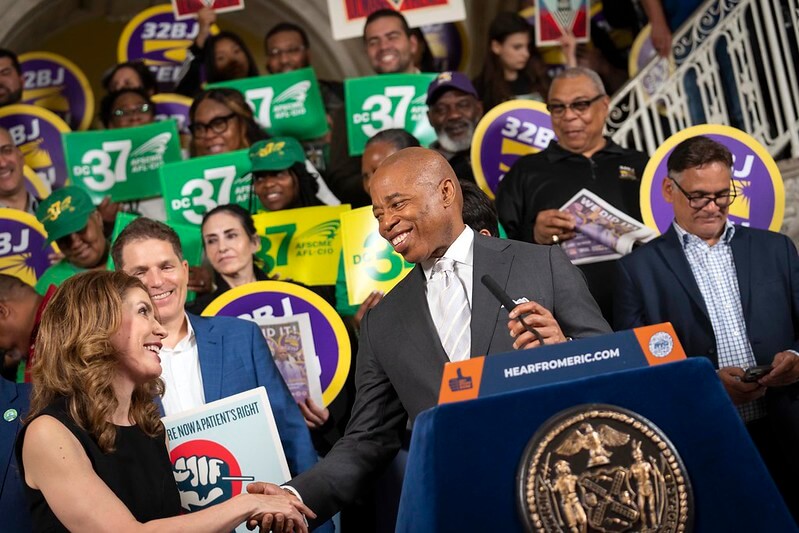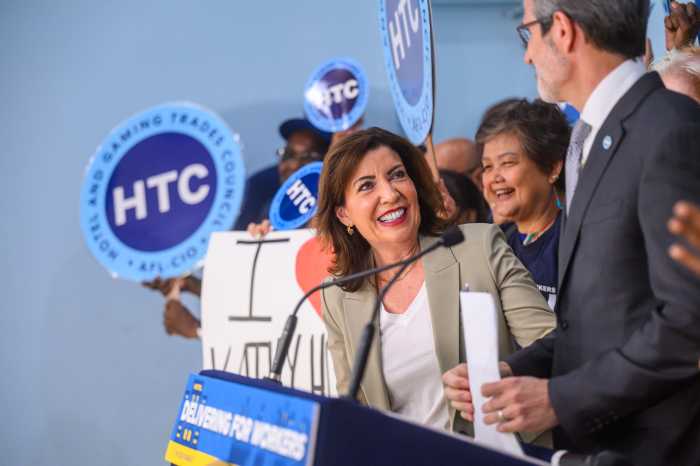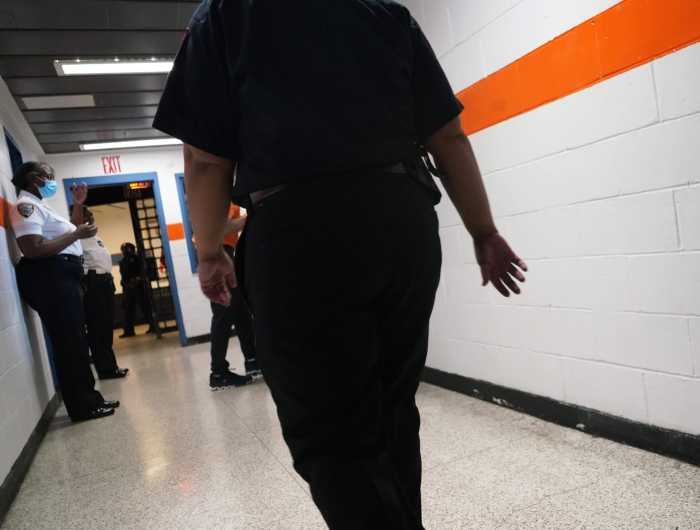Mayor Eric Adams signed a City Council bill on Friday creating a new Office of Healthcare Accountability that promises to let New Yorkers compare prices among public and private hospitals across the five boroughs on its website.
The bill, sponsored by City Council Member Julie Menin (D-Manhattan), unanimously passed the council earlier this month. In addition to making information about the costs of hospital procedures available on its website, the office would bring together stakeholders to examine health care costs, provide recommendations on hospital expenses and collect and make public financial documents from hospitals.
During a Friday City Hall press conference where the mayor signed the bill, he said it will help people avoid breaking the bank when seeking medical care.
“We might want to make sure that New Yorkers have all the information they need to stay healthy and get the care they deserve,” Adams said, “Working New Yorker’s shouldn’t be living in fear of getting sick because they can’t afford care. Our bank account should not determine the quality of care you deserve and your access to that care. This Office of Health Care accountability will help bring transparency to our healthcare system and ensure that New York’s know much care costs.”
The mayor was also joined by leaders of the city’s most prominent labor unions, including 32BJ SEIU and District Council 37, and the rapper Fat Joe, who’s been a national advocate on the issue of health care cost transparency.
Menin said the legislation makes New York the first city in the country to establish a health care accountability office. She said the price transparency the office will make available on its website is crucial because costs can vary dramatically across the city’s public and private medical facilities.
“If you are, for example, a woman that is giving birth by C-section and you go to Montefiore Hospital, you will receive a bill for $55,000 for that C-Section,” Menin said. “If you go to another New York City Hospital, it’s $17,000. If you need a routine colonoscopy … you’re going to pay $10,000 at New York Presbyterian in my district, and another New York City Hospital, you will pay $2,000. So there really is no price transparency.”
Knowing about those price differences, Menin said, will ultimately help people spend less on routine medical care and involved procedures alike.
The council member said the measure will also save the city itself $2 billion on what it’s shelling out for retired municipal workers. Many other states that have enacted price transparency, she said, have seen large reductions in their health care spending.
Fat Joe said he expects the implementation of the bill will create a “domino effect,” inspiring other cities to do the same.
“I thank New York City for being the first to pass this, but I figure this is going to be a domino effect around the whole country,” he said. “And we’re gonna see one by one fall in line because if you’re truly for the people, if you are truly for the American people, then you stand with health care, transparency.”
































